Clarion Collection Hotel Atlantic Sandefjord, Norway is a unique hotel offering an historical whaling culture experience with thousands of artifacts decorating the public spaces. The county of Vestfold, Norway is where the towns of Larvik, Sandefjord and Tonsberg are located. Vestfold is the historical whaling center of Norway with 10% of the population involved in commercial whaling from 1920 to 1970.
While traveling from Larvik to Sandefjord-Torp Airport, I departed the train and spent a few hours in Sandefjord to check out Hotel Atlantic before flying to Bergen. I read many guest reviews on TripAdvisor stating Hotel Atlantic has an impressive display of Norwegian whaling artifacts. Hotel Atlantic Sandefjord is ranked #1 of 5 hotels in Sandefjord with an 83% favorable rating.
Hotel Atlantic is as much a museum as a hotel. Despite torrential rain falling as I walked from the train station into town with no directions known, my stop to see Hotel Atlantic was well worth the visit. The hotel is only one block, about 100 meters from the train station. Whaling artifacts displayed around the hotel property rival, and in some ways surpass, the collection and displays at the Whaling Museum in Sandefjord.
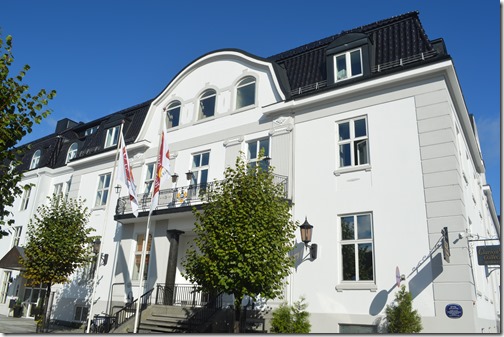
Hotel Atlantic opened in 1914, less than a decade after Norway’s first commercial whaling expedition launched for Antarctic fishing waters in 1905 from the Sandefjord port. The vast wealth from the whaling industry made Sandefjord the richest town in Norway for a period of the 20th century.
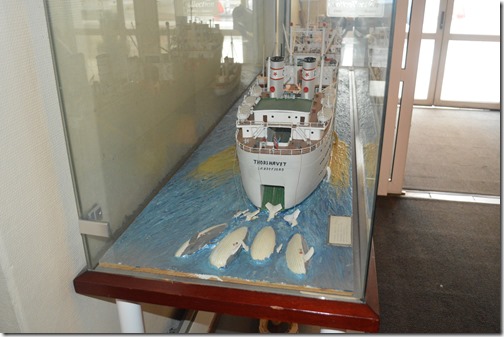
The Hotel Atlantic lobby entrance has a whale harpoon cannon and large model ship of a commercial whaler. There are many harpoon cannons displayed around the hotel.
Between 1920 and 1990, 2.7 million whales were caught worldwide. Of these, about 350,000 blue whales were killed. It is estimated there were about 275,000 blue whales worldwide before commercial whaling. The peak year for blue whale catches was 1931 when 29,649 blue whales were killed. Estimates for current blue whale populations range from 8,000 to 14,000 worldwide.
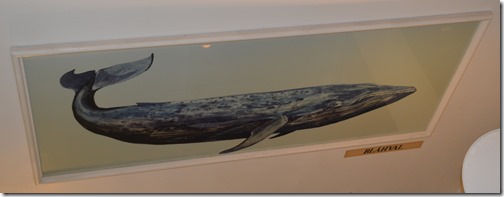
A recent report published this past week states the California Blue Whale population is around 2,200 or 97% of its pre-whaling population. An estimated 3,400 California blue whales were caught from 1905 to 1971. The California blue whale population is the largest concentration of blue whales remaining in the world. Being from Monterey, California, the months of August and September are the time of year most likely to spot blue whales in Monterey Bay, California.
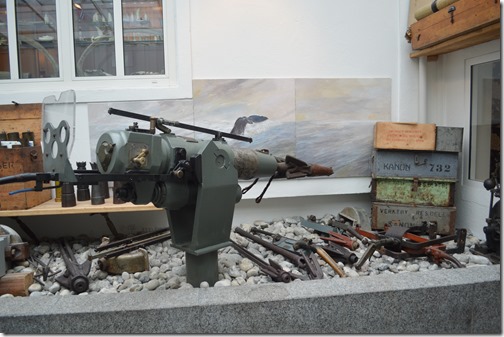
Blue whales were too fast for whaling ships until the harpoon cannon was developed.
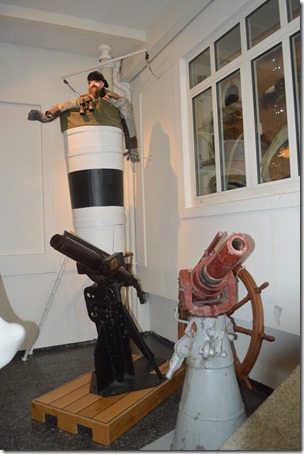
Guaranteed that the dining rooms of Hotel Atlantic are unique for a hotel. There are several small rooms along a hallway with each room featuring artifacts from whaling ships.
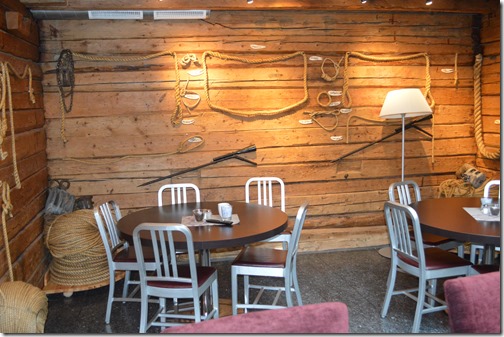
I did not count the rooms. I think there were six or eight small rooms with each giving the feel of being inside a ship.
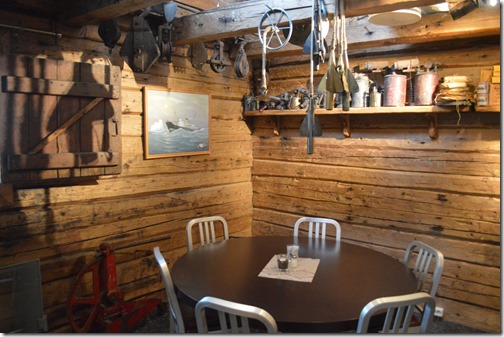
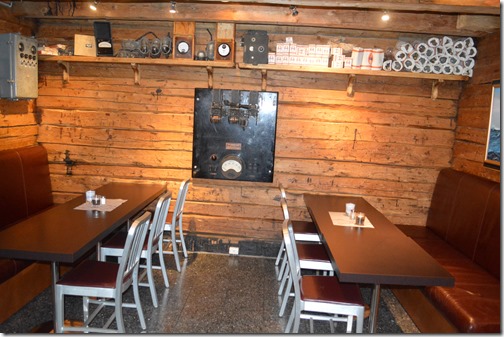
The processing of a whale involves flensing the layers of blubber. These long blades are displayed on the walls for viewing with your morning coffee.
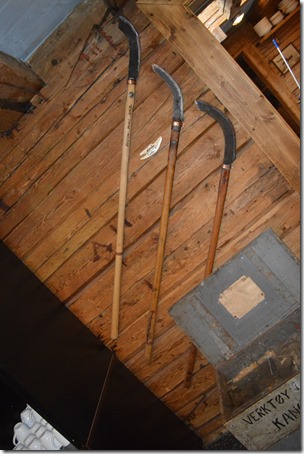
The breakfast buffet is served on a small boat.
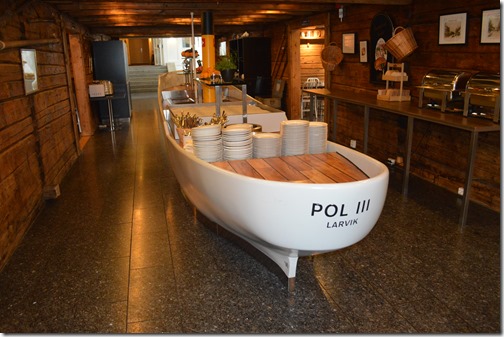
There are display cabinets with hundreds of ivory carvings. There is amazing craftwork in many of these pieces.

While ivory is most commonly associated with elephant tusks, there are also ivory tusks from the walrus, narwhal and ivory teeth in sperm whales.
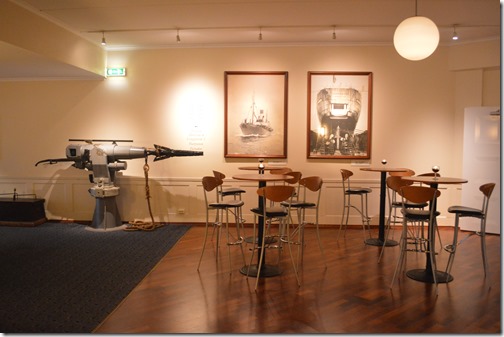
Even the Hotel Atlantic carpet has a whale pattern.
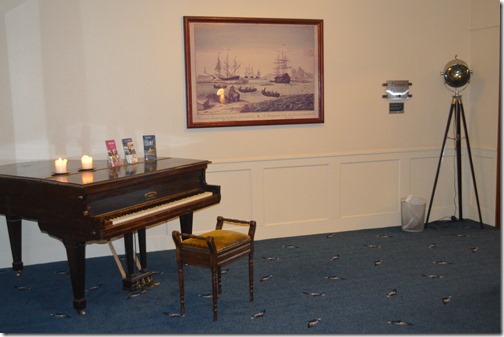
In the hall stairwell to guest floors is a large diorama of the South Georgia Island Norwegian whaling station.
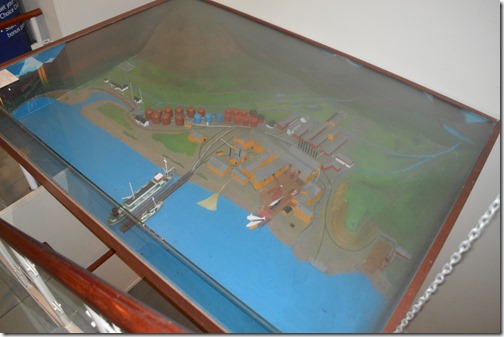
There are historic photos on different floors of the hotel.
1920 to 1940 was the heyday of whaling in Sandefjord when more than 70% of the town revenue came from whaling and over 10% of the population was employed in whaling.
In 1935 one barrel of whale oil sold for 42 Norwegian kroner. The income from one blue whale was around 6,300 NOK or the equivalent of about $34,000 USD today. Norway’s whaling industry produced around 160,000 metric tons of fats from whale oils in the 1950s. The fats were used for food items like margarine and industrial lubricants. Norway processed about 1/3 of the annual 500,000 metric tons of whale oil worldwide in the 1950s.
By 1960 the population of whales worldwide had declined precipitously and the whaling industry impact on Norway’s gross domestic product dropped from around 2% in 1950 to 0.5% in 1960.
Over the next 25 years there was international pressure to preserve endangered whales species. In 1986 an international moratorium on whaling was adopted by the International Whaling Commission. Norway filed an exception to the moratorium and has continued commercial whaling since 1993 for minke whales, a whale species that is not endangered.
Norway’s annual whaling season ended in the past couple of weeks for 2014 with 729 northern minke whales killed by Norwegian whalers, the highest number since Norway resumed commercial whaling in 1993. The global population of minke whales is currently estimated to be about 180,000.
Clarion Collection Hotel Atlantic Sandefjord is a fascinating hotel museum documenting Norway’s whaling culture. In another post I will share photos of a hotel suite I saw at Hotel Atlantic. The staff at the hotel were kind enough to hold my luggage while I also visited the Sandefjord Whaling Museum and the Southern Actor in Sandefjord harbor, a commercial whaling ship built in 1950 and restored in 1996 for tourism.
Much of the data in this post is taken from the Sandefjord Whaling Museum displays.
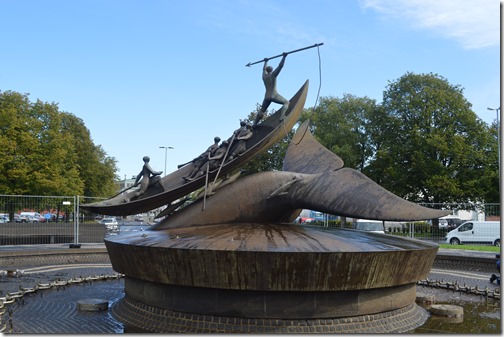
Whaling Monument, Sandefjord, Norway.
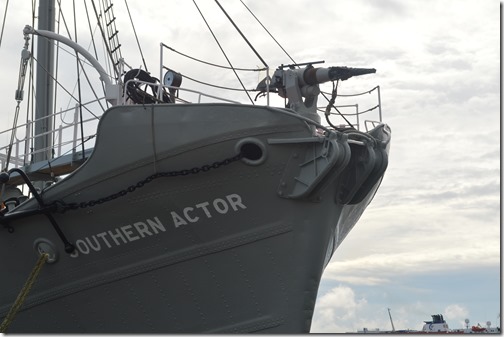
*****
Ric Garrido of Monterey, California is writer and owner of Loyalty Traveler.
Loyalty Traveler shares news and views on hotels, hotel loyalty programs and vacation destinations for frequent guests. Check out current hotel loyalty program offers across all the major chains in Loyalty Traveler’s monthly hotel promotions guide.
Follow Loyalty Traveler on Twitter and Facebook and RSS feed.


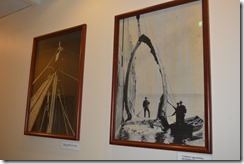
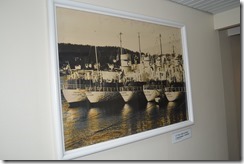
1 Comment
Comments are closed.